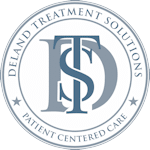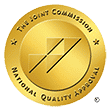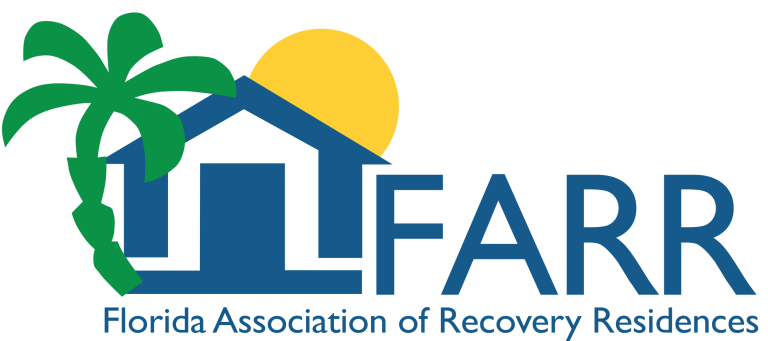Obsessive-compulsive disorder (OCD) is one of the mental disorders that affect a person’s life through the use of intrusive thoughts, also known as obsessions, as well as repetitive behaviors, also referred to as compulsions. These symptoms can be exhausting, making even simple daily tasks overwhelming. Relief comes in the form of Cognitive Behavioral Therapy or CBT, which is considered one of the best treatments for the disorder to allow people to start taking control of their thoughts and actions.
What is OCD?
Obsessive-compulsive disorder also abbreviated as OCD is a mental health disorder, in which unwanted thoughts plague one. Though they know the thoughts are unwanted, they feel compelled to perform certain acts. Some of the most common forms include prevention of contamination, having objects arranged in a specific way, or thinking aggressive thoughts. In a bid to neutralize such negative thoughts, individuals suffering from OCD end up performing compulsive behaviors, which include washing, checking, and counting, amongst others.
These obsessions and compulsions are interrelated and one turns into the other, hence becoming a vicious cycle. Some students have obsessional thoughts, which lead to anxiety, while others have compulsive behaviors, to reduce the level of anxiety, although the obsessional thoughts will reappear shortly after. This cycle can hinder one’s functionality daily and as a result, this leads to frustration and hopelessness.
What is Cognitive Behavioral Therapy (CBT)?
Cognitive Behavioral Therapy is a structured, evidence-based form of psychotherapy that focuses on the connection between thoughts, feelings, and behaviors. CBT is supposed to assist a person in determining the distortions in the way he or she thinks and changing it for a more logical and rational one. A major part of CBT for OCD is Exposure and Response Prevention (ERP), which involves strategies proposing gradual exposure of an individual to his or her feared thoughts or situations while preventing engagement in the compulsive behavior.
CBT assists people in stopping the vicious cycle of OCD because their thoughts, though unpleasant, do not warrant them to perform compulsions.
Looking for OCD Treatment? Contact DeLand Treatment Solutions
At DeLand Treatment Solutions, we offer Cognitive Behavioral Therapy for OCD treatment. The compassionate therapists we hire are well-equipped to help you deal with OCD and any symptoms in line with well-established methods like ERP. Get in touch with us today, start your journey towards a changed life, and know how CBT can help you.

Support is available—you've taken the first step by starting your research.
Lorem ipsum dolor sit amet, consectetur adipiscing elit. Ut elit tellus, luctus nec ullamcorper mattis, pulvinar dapibus leo.
You can also start by checking your insurance coverage online.
Common Symptoms of OCD
- Obsessions: unwanted, intrusive thoughts, images, or urges that cause distress. Common obsessions include:
- Fear of contamination or germs
- Fear of harming oneself or others
- Needing things to be symmetrical or in a specific order
- Aggressive or taboo thoughts (e.g., related to violence, religion, or sexuality)
- Compulsions: Repetitive behaviors or mental acts performed to relieve anxiety or prevent a feared event. Common compulsions include:
- Excessive washing or cleaning
- Checking (e.g., doors, appliances)
- Counting or repeating actions a specific number of times
- Arranging items until they feel “just right.”
- Seeking reassurance from others
Contact Solutions Healthcare
Battling with Drug and Alcohol Addition? Remember, you are not alone and we are here to help you!
How CBT Works for OCD
CBT is used in helping to disrupt repetitive behaviors that define OCD such as obsessions and compulsions. Here’s how it works:
- Challenging Irrational Thoughts: Cognitive behavioral therapy assists the affected person in coming up with suitable and realistic ways of arguing to change the paranoid beliefs behind the obsessions. Such thoughts are usually distorted or irrational and CBT involves challenging such beliefs.
- Changing Behavior Patterns: In ERP, patients are trained on how to face their phobias without doing compulsions, hence helping to break the chain between the two in the long run. Slowly and steadily, people are made to understand that the dreaded consequences are not going to happen or can be dealt with, in the case of obsessive-compulsive disorder.
- Developing Coping Skills: CBT helps in identifying behavioral techniques to help in the prevention of anxiety and the need to perform compulsions. This we do using therapeutic activities such as relaxation techniques, mindfulness and counseling to help change the negative thinking of the brain to more appropriate and healthy ways of thinking.
Benefits of Cognitive Behavioral Therapy for OCD
CBT offers several key benefits for individuals with OCD, including:
- Long-Term Symptom Management: Unlike some treatments, which may yield a short-term result, CBT prepares the clients with methods that they can apply in the future.
- Improved Quality of Life: CBT makes it possible for a patient to work and begin focusing on relationships, one’s career and so on after reducing the severity of the OCD symptoms.
- Empowerment: CBT focuses on increasing perceived self-control, this therefore takes away the idea that the person with OCD requires constant support to overcome the disorder.
CBT is one of the best treatments for OCD which makes it easy for an individual to come out of the obsession and compulsion phase. If you or someone you know is struggling with OCD, CBT can provide long-lasting relief and help you regain control over your life.

Learn more about how you can start the process of conquering OCD and contact DeLand Treatment Solutions today. Our team is staffed by experienced professionals who are ready to help you in every step of the recovery.





























